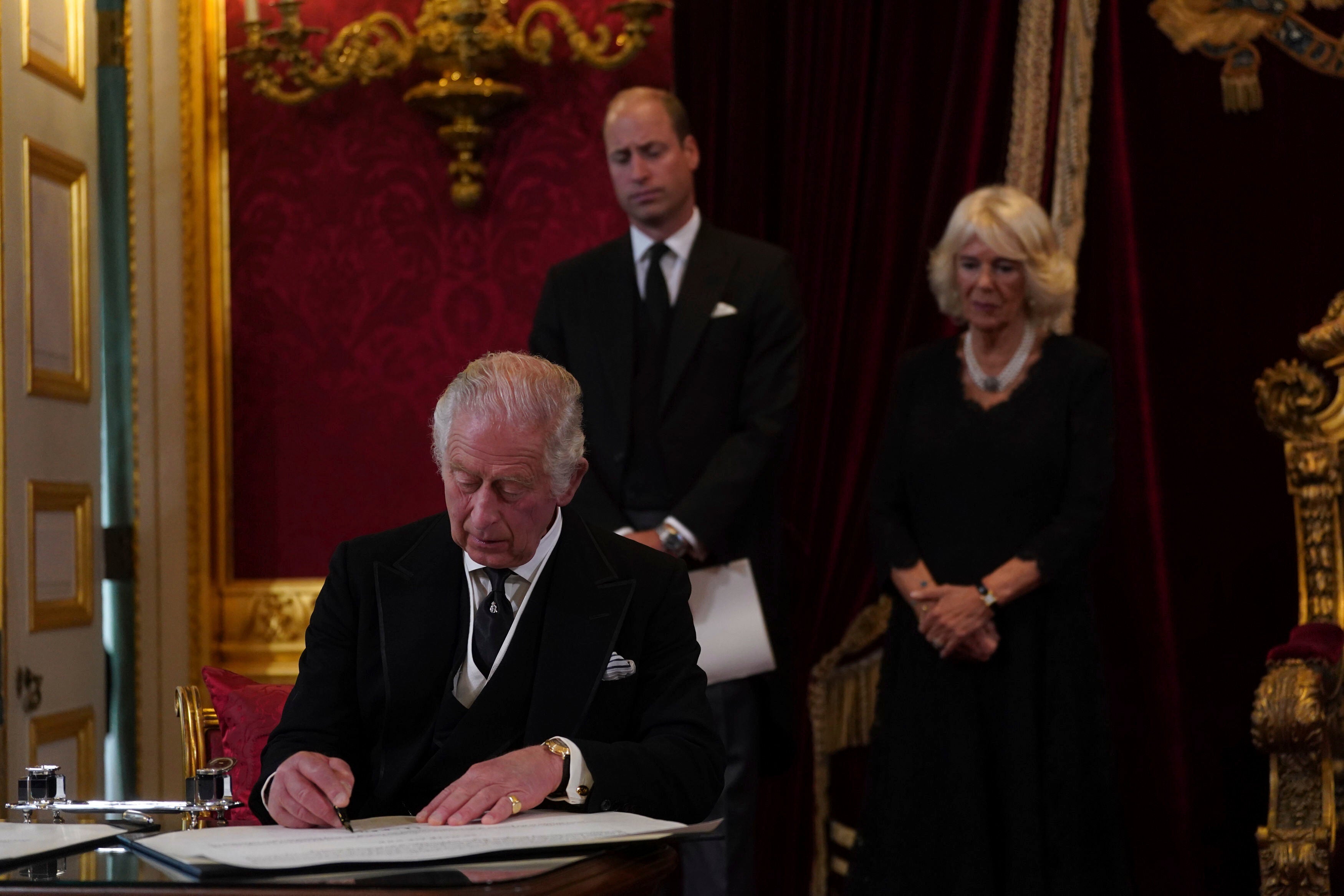King Charles was right to let the cameras into the accession council
Editorial: For the first time, the people could see into the inner workings of the British constitution

King Charles “let in daylight upon magic”, and the result was partly as Walter Bagehot predicted. The first time the television cameras have been allowed to broadcast, live, a privy council meeting revealed it to be about as magical as the average parish committee.
Apart from the pomp and Ruritarian circumstance surrounding it, the actual business of the accession council consisted of Penny Mordaunt, lord president of the council, reading out antique phrases about seals, the King saying, “Approved,” and a lot of people signing some documents.
Bagehot was wrong, however, to suggest that it would be a bad thing to reveal the inner workings of the British constitution. The King has made a welcome decision to make the transfer of royal authority as open as possible. He was right to meet and shake hands with members of the public outside Buckingham Palace on Friday, and even to allow his hand to be kissed in a few cases, because it is important that the royal family should be engaged with the people.
If we are to have a constitutional monarchy in this country, and we are for the foreseeable future because it is considerably more popular than any alternative arrangement, it must be democratic, open and in touch with the people.
The privy council is, in Bagehot’s terminology, part of the dignified rather than the efficient part of the constitution. Its role is ceremonial and symbolic. It was fitting that all six living former prime ministers were in the front row for the formal proclamation of Charles as King: the privy council helps to bind all the parties and governments past and present in a show of constitutional continuity.
Ceremony and symbol matter, which is why they have them in republics such as the United States and France. They signify popular consent to constitutions; they are a way of affirming the rules of the game. So King Charles was right to let the cameras in, so that the people could see for themselves that the monarchy is indeed, constitutionally, just a pen. The government has the power to make decisions, on the authority of the people in elections; his role is just to sign.
To keep up to speed with all the latest opinions and comment, sign up to our free weekly Voices Dispatches newsletter by clicking here
When the nation has a new prime minister and a new monarch in the same week, such openness is all the more important in underpinning the continuity of the constitution.
For a constitutional monarchy to work requires immense restraint and discretion on the part of the sovereign. King Charles’s mother was a model of how it should be done because no one ever thought that she was trying to influence the decisions of the democratically elected representatives of the people. So the King was right, in his address to the nation on Friday, to promise to follow her example.
She will be a hard act to follow, but the King has made the right decisions at the start of his reign to maintain the principle of consent on which the monarchy, and its role as the guarantor of our democratic constitution, rests.



Join our commenting forum
Join thought-provoking conversations, follow other Independent readers and see their replies
Comments